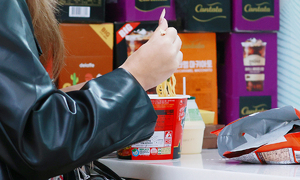10년내 시장경제 정착 성공할 것
 |
| 리처드 란 美 세계경제성장연구소 총재 |
지금 이라크 수도 바그다드의 치안 상태는 여전히 위험하다. 국제공항에 손님이 도착하면 경호회사 직원이 영접을 나와서 방탄조끼를 건넨다. 외국 손님을 태운 방탄차는 자동소총으로 무장한 경호원들이 호위한다.
주요 국제호텔들은 경비가 삼엄하다. 콘크리트 담장과 철조망으로 둘러쳐진 호텔에는 경비원들이 배치되어 방문객의 출입을 통제한다. 경호원과 장갑차 없이는 호텔 바깥 출입이 어렵기 때문에, 행동의 제약을 받는 호텔은 감옥이나 다름없다. 미국인을 비롯한 외국인들은 납치될 위험이 있다는 경고를 받는다. 그러다 보니 호텔의 음식이나 서비스의 질이 호텔에서 기대할 만한 수준에 못 미친다.
그러나 반가운 소식도 있다. 바그다드를 비롯한 몇몇 지역을 제외한 이라크의 대부분 지방은 안전하고 정상적인 생활을 회복하고 있다. 특히 쿠르드족 거주지역은 실제로 경제적인 호황을 누리고 있다. 이는 위험부담을 감안하고도 투자수익을 낼 수 있는 사업의 기회가 커지고 있음을 의미한다.
여러 가지 면에서 이라크는 15년 전 유고와 비슷하다. 즉 인종과 종교 전쟁이 유고 전역에서 벌어지는 가운데 비관주의자들은 평화롭고 자유로운 시장민주주의 체제가 결코 뿌리내릴 수 없다고 말했다. 그러나 유고에서 독립한 여러 나라에서 자유시장체제가 성공했고, 지금 많은 사람들이 전보다 잘살고 있다.
유고는 영토가 사분오열된 데다 석유 수입과 같은 통일에 도움이 되는 접착제도 없었다. 이라크는 연방공화국 형태의 국가체제를 만드는 한편 주민들이 원하는 종교에 맞추어 이주함으로써 인구 재배치가 가능할 것이다.
끝이 없어 보이는 내전과 종교 분쟁이 한쪽의 승리나 양쪽의 기력상실로 막을 내린 사례가 역사에는 무수한 것으로 보인다. 베트남이 부분적으로 자유로운 시장경제를 실현하여 오늘날처럼 번영할 것을 30년 전에 누가 예측할 수 있었겠는가.
얼마 전 워싱턴의 국제민간기업연구소가 바그다드에서 개최한 회의에는 이라크의 15개 내지 18개 주의 투자위원회 대표 100여명이 참가했다. 회의 목적은 효율적인 외자유치 방법을 논의하는 것이었다. 이들이 자기 주에 외국 민간자본을 끌어들이는 방법을 배우기 위해 먼 길을 온 것은 이라크에 평화롭고 정상적인 생활이 회복될 가능성이 있다는 반증이다.
20년 전 공산주의가 붕괴된 직후 동부와 중부 유럽의 여러 나라들이 겪은 경제문제가 지금 이라크를 괴롭히고 있다. 사담 후세인 전 대통령은 대기업의 대부분을 국유화하여 동유럽 기업들처럼 효율성이 나빴다. 현재 사유재산이 충분한 보호를 받지 못하고 관료적 규제와 간섭이 생산적인 경제활동의 대부분을 질식시키고 있다. 경제에 대한 규제 해제와 정부의 관료주의 탈피가 현재 진행 중이다.
활발한 시장경제의 정착에 미래의 번영이 달려 있다는 것을 이해하는 이라크인들의 수가 늘고 있다. 이라크인들은 시장경제 정착에 성공하는 데는 법의 통치, 사유재산 보호, 가격통제 철폐, 통화 안정, 낮은 세율, 효율적인 규제가 필요하다는 것도 이해한다.
석유 수입으로 생계를 유지하며 경제의 자유화에 반대하는 이기적인 정부 관료들이 너무 많은 현 상황에서 원유가격 하락은 이라크에 축복이 될 수도 있다. 왜냐하면 이라크인들이 석유 수입에만 의존할 수 없다는 것을 깨닫고 건전한 시장경제를 창설해야 할 필요성을 느끼도록 만들 수 있기 때문이다. 유럽과 아시아에서 전쟁에 시달린 나라들의 경우를 볼 때 이라크는 10년 내에 민주주의 틀 안에서 시장경제체제를 실현하는 데 성공할 전망이다.
리처드 란 美 세계경제성장연구소 총재
워싱턴 타임스
정리=오성환 외신전문위원
Invest in Iraq?
Richard Rahn
Would you invest in Iraq ? Many people think it is crazy to even ask the question. But strange as it may seem, there may already be some good investment opportunities in Iraq , and chances are there will be many high-yielding investments in the country in the next few years.
When you arrive at the international airport in Baghdad and are greeted by a security company that puts an armored vest on you, and then loads you into a highly armored vehicle manned by tough guys with automatic weapons, just to get you to a hotel, you are thinking, "This is the last place where I would ever invest."
The hotel experience is also not particularly pleasant, because rebuilding is going on all around you. Bombs and rockets can do a lot of damage to a modern hotel, which has the unfortunate side effect of driving away customers. And a largely empty hotel with holes in it deteriorates rapidly.
The major international hotels are in security compounds, which means they are surrounded by concrete walls and barbed wire with guards who determine who may enter.
The hotel is an odd prison - you can legally walk out without guards, armor, and armored vehicles, but Americans and other foreigners are advised not to because they are likely to become kidnapping victims - which is a strong deterrent to one's urge to roam free. A hotel having "captive guests" behaves like any monopoly and doesn't go to any great length to provide food that one looks forward to eating.
A "captive guest" is one whose life is in danger if he leaves the hotel without security, and if he leaves with security, the cost can be mighty high, i.e., the gear, the armored vehicles and the many guards, just to have dinner somewhere else.
The good news is that much of Iraq, other than Baghdad (outside the Green Zone and other high-security compounds) and a few other places, is returning to normal and is safe, and parts of it, such as the Kurdish region, are actually booming. This means there are increasing potentially profitable private investment opportunities, on a risk- adjusted rate of return basis.
Iraq in many ways resembles the former Yugoslavia of 15 years ago. Ethnic and religious warfare was endemic, and the pessimists said peaceful, free market democracy could never take hold - yet it has, and many people are prospering as never before.
Yugoslavia did break into pieces, but it did not have the glue of oil revenues. Iraq can probably evolve into a federal republic with people moving to provinces that best meet their particular religious preferences. History is replete with examples of seemingly endless civil war and religious strife that ended through victory of one side or, more often, sheer exhaustion of the participants. Thirty years ago, who would have predicted that Vietnam would have a booming, partially free, market economy today?
This past week, the Washington-based Center for International Private Enterprise (CIPE) hosted a conference in Baghdad where about 100 representatives of 15 of the 18 Provincial Investment Commissions (PICs) came to discuss how they more effectively attract foreign investment. If the Iraqis didn't think things were getting more peaceful and normal, it is unlikely they would waste time traveling some distance to Baghdad by automobile to learn how they might obtain more private foreign investment in their provinces.
Iraq suffers many of the same economic ills that plagued the Central and Eastern European countries two decades ago when communism collapsed. Saddam had nationalized most of the large businesses, and these socialist enterprises are no more efficient than their Eastern European counterparts were.
Private property is not sufficiently protected, and bureaucratic regulation and interference still smother much productive economic activity. Some of the mistakes the Bush administration made in Iraq were not being far more aggressive in privatizing state-owned enterprises (including the oil companies), deregulating the economy, and de-bureaucratizing the government before it was returned to Iraqi civilian rule. This is now slowly being done, but it is a longer and much more difficult slog than was necessary.
Increasing numbers of Iraqis understand their future prosperity lies in developing a vibrant market economy, and they also understand the conditions for such an economy include the rule of law, protection of private property, abolition of price controls, stabilization of money, low tax rates and basing regulations on sound cost-benefit analysis.
The all-too-numerous and unproductive government bureaucrats who feed at the trough of the state oil revenues are selfishly resistant (as they are in other countries) to the needed freeing of the economy.
Ironically, the drop in oil prices maybe a blessing to Iraq, because it will help convince the people they cannot just rely on oil revenues, and, in turn, must create a healthy, broad-based market economy. Given the recent histories of other war-torn countries in Europe and Asia, my bet is that a decade from now Iraq is most likely to have a reasonably successful market economy within a democratic framework.
Finally, if my prediction is right and if Iraq does evolve into a "normal" country, much of the credit will be not only to the sacrifices of the men and women of the U.S. military but also the civilians working for the U.S. government and nongovernmental organizations, all living under very unpleasant and dangerous conditions while doing their best to make Iraq a better place.
Eleven days ago, a young Iraqi working on the reconstruction of the hotel volunteered to me he was thankful that Americans had got rid of Saddam and he appreciated what Americans were trying to do for his country. I expect his expressed feelings may be shared more widely in Iraq than many would want to admit.
armored vest:방탄조끼 captive:포로로 잡힌
Copyright ⓒ 세계일보. 무단 전재 및 재배포 금지
![[설왕설래] 남산 케이블카 64년 독점](http://img.segye.com/content/image/2026/01/08/128/20260108517225.jpg
)
![[기자가만난세상] 탈모가 생존 문제라는 인식](http://img.segye.com/content/image/2022/05/13/128/20220513513395.jpg
)
![[삶과문화] 클래식 음악 앞에 긴장하는 당신에게](http://img.segye.com/content/image/2023/02/10/128/20230210519107.jpg
)
![[박일호의미술여행] 솟아라, 희망과 활력](http://img.segye.com/content/image/2026/01/08/128/20260108517164.jpg
)








